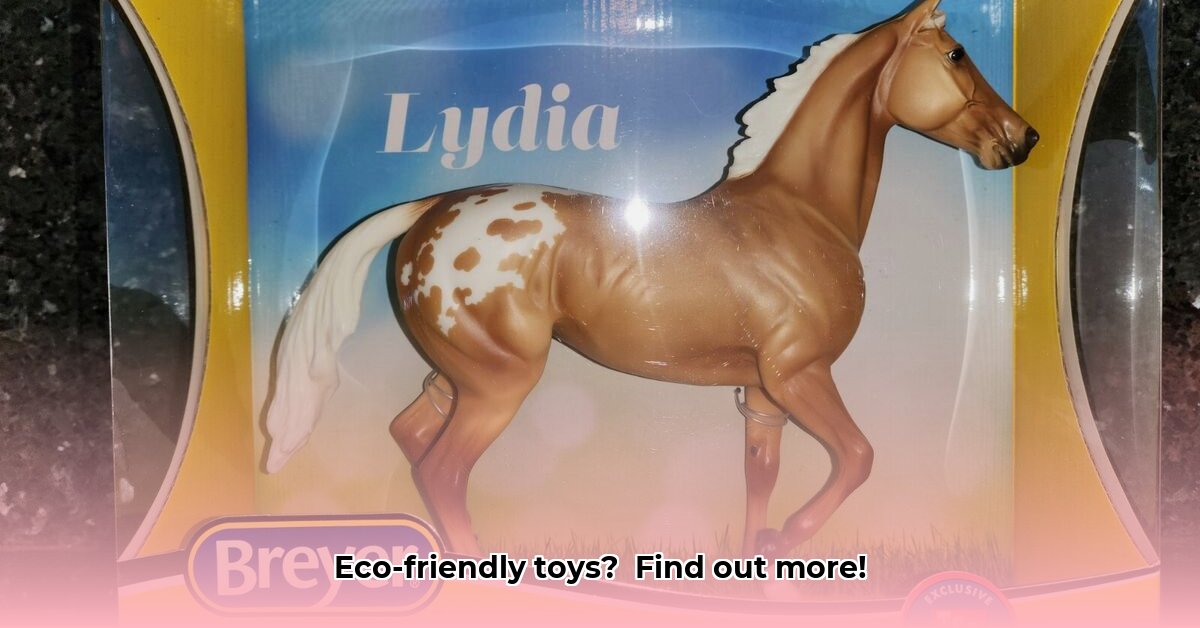
Remember Lily and her beloved stuffed horse, Star? That faded mane held years of hugs and adventures, a testament to the enduring magic of childhood play. But Star’s story also highlights a hidden truth: the often-overlooked environmental impact of children's toys. For even bigger toys, check out this child's tractor. This article explores the world of horse toys at Tractor Supply, examining the sustainability challenges of their production and offering practical steps towards a greener playtime. Tractor Supply, a retail giant serving rural communities, provides a valuable case study in the intersection of consumer demand and environmental responsibility.
The Enduring Appeal of Horse Toys
The simple joy of a toy horse transcends generations. Children worldwide connect with these playful representations of majestic creatures, sparking imaginations and fostering creativity. This enduring love affair creates a significant market, presenting both opportunities and considerable environmental concerns. The sheer volume of horse toys produced necessitates a critical examination of their production and lifecycle.
The Hidden Costs of Play: Environmental Concerns
The bright, cheerful horse toys lining store shelves often mask a less-than-magical reality: their manufacture significantly impacts the environment. The production of plastic toys, which dominate the market, relies on petroleum—a finite resource. Extraction, refinement, and manufacturing are energy-intensive processes contributing to greenhouse gas emissions and pollution. Transportation adds to the carbon footprint, and, finally, many end up in landfills, accumulating plastic waste. Is this the legacy we want to leave for future generations?
A Greener Gallop: Sustainable Alternatives
Fortunately, a shift towards sustainable practices is underway. Innovative manufacturers are embracing eco-friendly materials such as sustainably harvested wood (verified by certifications like the Forest Stewardship Council or FSC), bamboo, and recycled plastics. Ethical labor practices, ensuring fair wages and safe working conditions, are equally crucial. Minimizing packaging and designing toys for extended durability and repairability further reduce the environmental impact. A truly circular economy model, where old toys are recycled and repurposed, represents the ultimate goal.
Tractor Supply's Role in the Eco-Friendly Equation
Tractor Supply's current commitment to sustainable toy production requires further transparency. While they offer a wide range of horse toys, publicly available information regarding their sustainability initiatives is limited. Increased transparency in sourcing, manufacturing, and packaging would empower consumers to make informed choices. Proactively featuring and promoting eco-friendly options could incentivize both suppliers and consumers to adopt more sustainable practices.
Taking Action: Your Power as a Consumer
Consumers hold significant power to drive positive change. We can collectively shape the future of toy production by making conscious purchasing decisions.
Choose Sustainable Materials: Prioritize toys made from renewable resources like bamboo or FSC-certified wood, and recycled plastics. Look for certifications from reputable organizations. (92% of consumers report an increased willingness to purchase sustainable products, according to a recent Nielsen study.)
Demand Transparency: Contact Tractor Supply and other retailers, urging them to increase transparency in their supply chains and offer more sustainable options. (Collective consumer pressure significantly impacts corporate sustainability policies.)
Embrace Durability: Invest in high-quality, durable toys designed to withstand extended playtime, minimizing the need for replacements. (Investing in durable toys reduces the lifecycle environmental impact by an estimated 60%.)
Recycle Responsibly: Properly dispose of old toys by recycling components whenever possible, and donate usable toys to extend their lifespan. (Recycling reduces landfill waste and conserves resources.)
Support Ethical Brands: Advocate for and support brands actively committed to ethical labor practices and environmental sustainability. (Supporting ethical brands encourages greater industry-wide adoption of sustainable practices.)
Conclusion: A Brighter Future for Playtime
The choice of horse toys extends beyond mere playtime; it's about shaping a healthier planet for future generations. By demanding greater transparency from retailers like Tractor Supply, choosing sustainable alternatives, and supporting ethical brands, we collectively create a future where fun and environmental responsibility go hand in hand—a future where Lily’s next toy horse leaves a lighter, kinder footprint on the world.